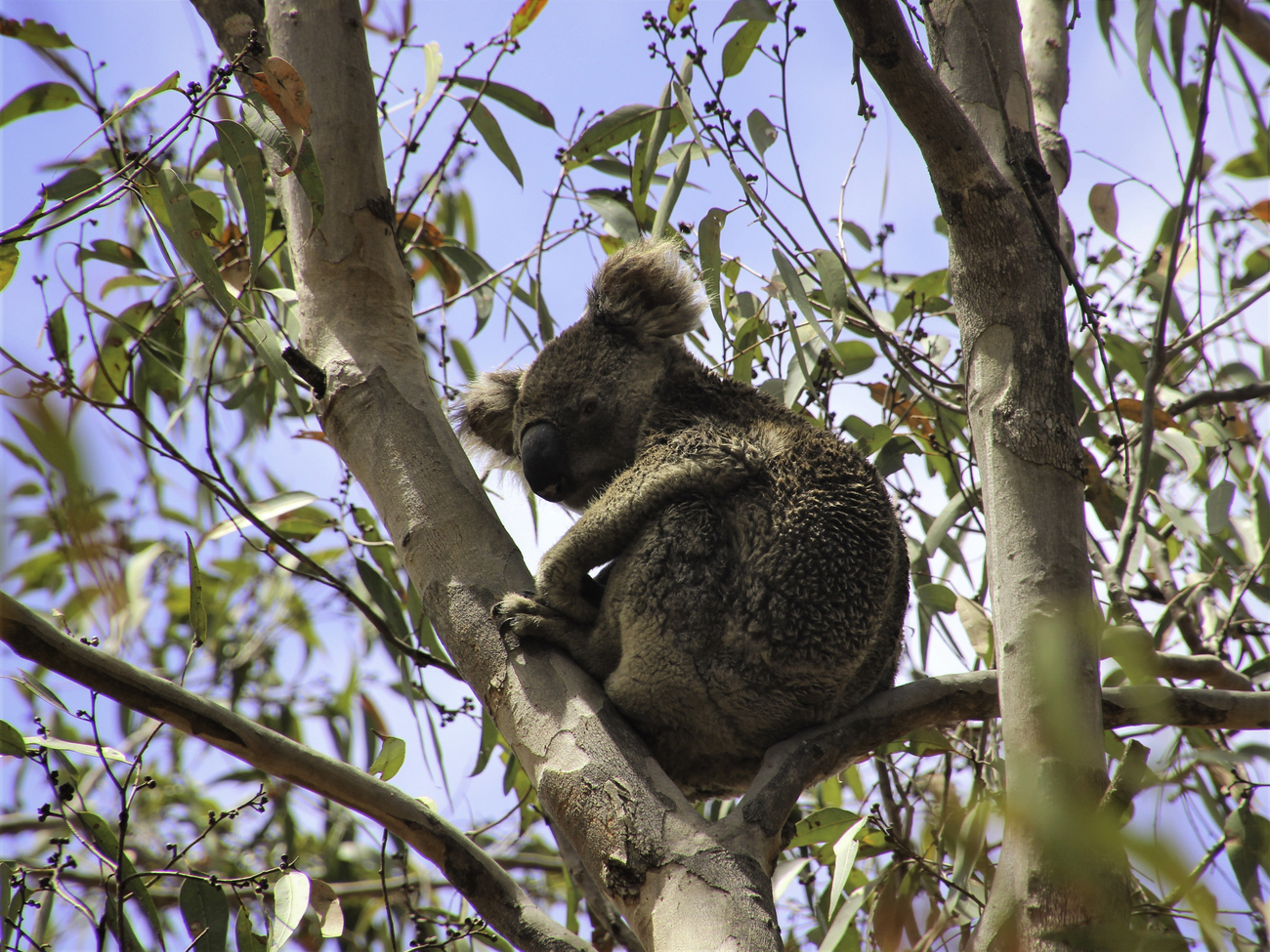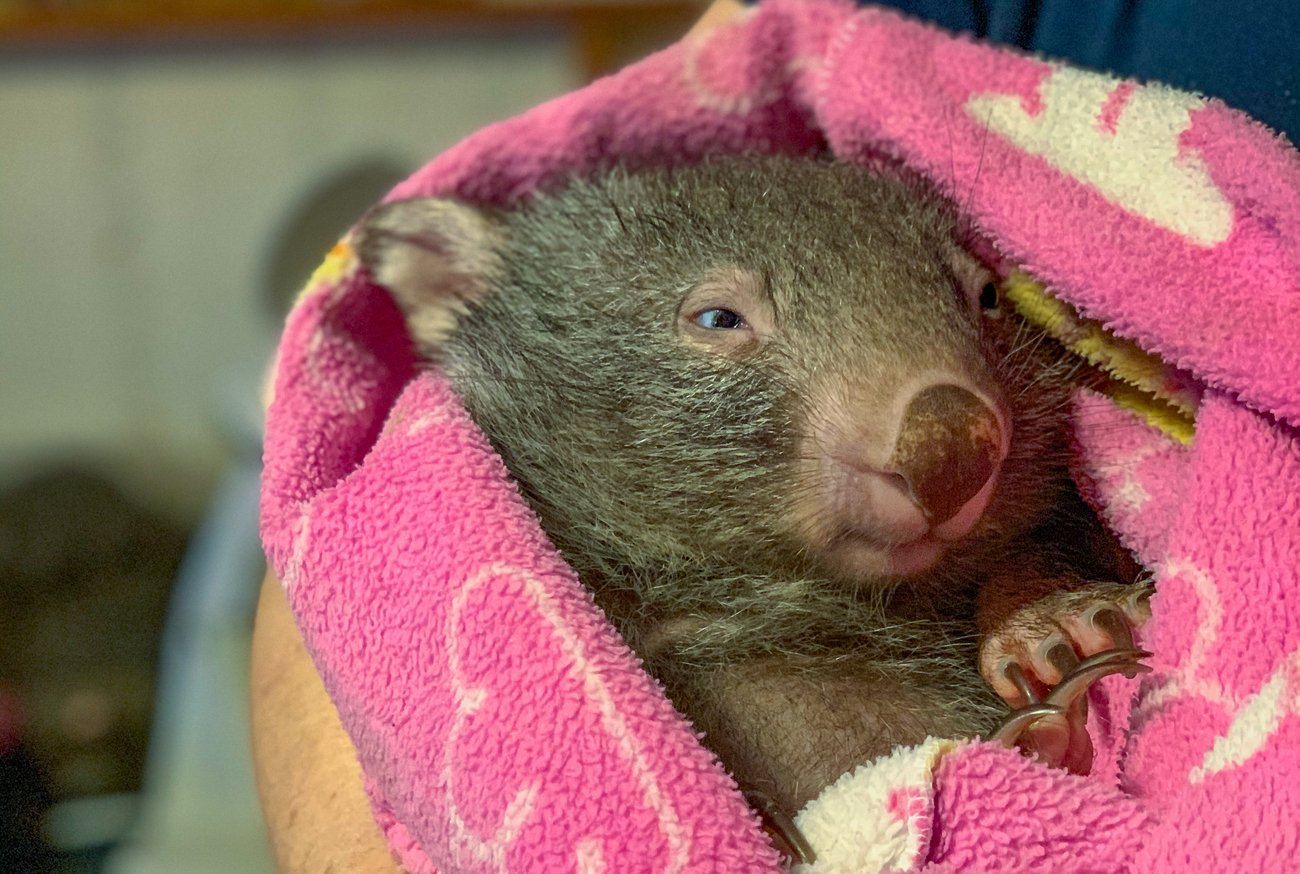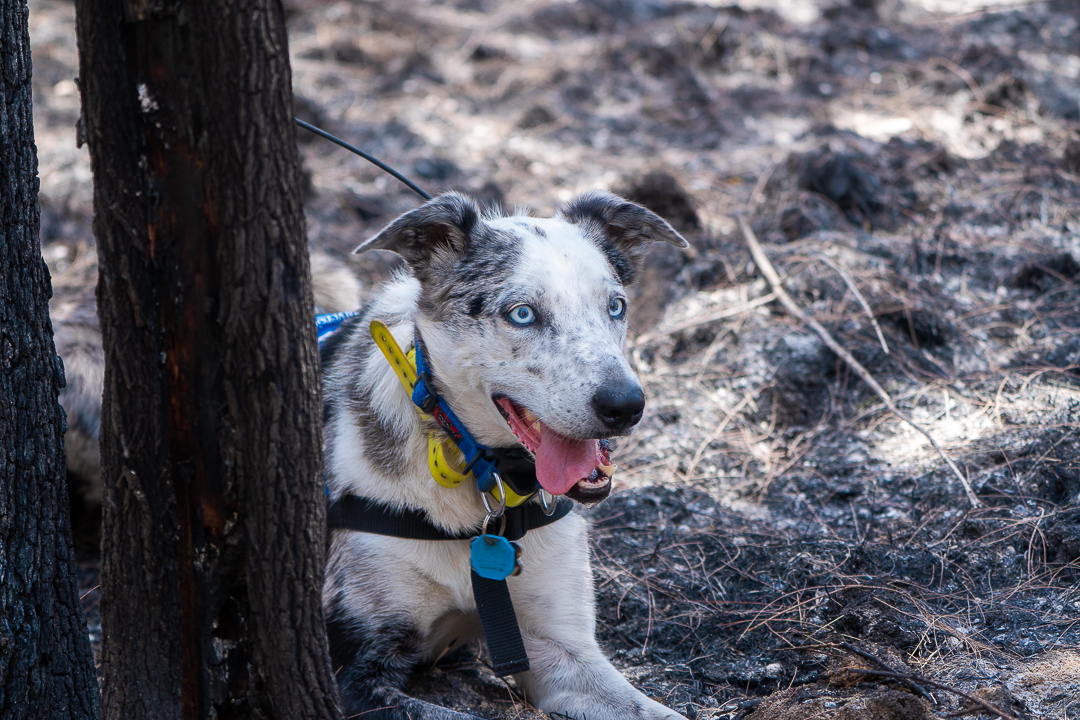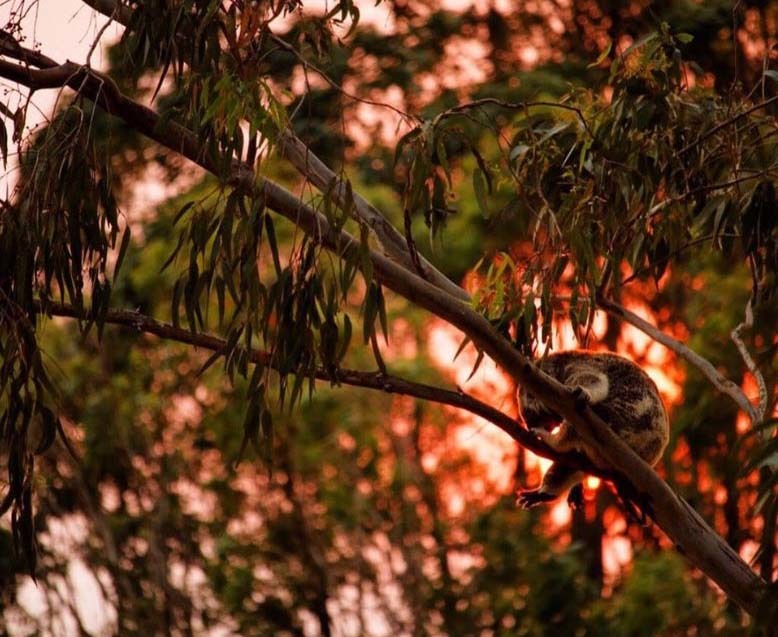ifaw team deploying to Australia bushfires
ifaw team deploying to Australia bushfires

Updated: 31st January, 2020
It’s been four weeks since our international disaster response team deployed to Australia to provide additional on-the-ground support. To date, we have granted $400,000 in supplies like enclosures, fire gear, and water stations to wildlife carers in New South Wales and Victoria. Our team continues to visit wildlife rehabbers and provide hands-on support to individuals caring for rescued koalas, wallabies, flying foxes, birds, and kangaroos.
Recently, Bear the detection dog, from the University of Sunshine Coast’s Detection Dogs for Conservation team, deployed to Kandanga near Gympie, Queensland. He located ten koalas, nine of which appeared to be doing fine. One was not doing so well however, and was rescued by the team. His name is Ranger, found dehydrated and in very poor condition with ashes in his mouth and covering his fur. Thankfully though, no burns were found. He is currently being treated by a local wildlife hospital and we hope he will be released in about 3 weeks’ time.
When responding to disasters, it’s crucial to create an organised system where we can track requests and the influx of rescued animals. Our team has implemented the Caring4Carers initiative as a way to fulfill this need. Wildlife rehabbers can email us at caring4carers@ifaw.org to request assistance or offer their support to others. In addition, we are hosting planning sessions with representatives from the Foundation for National Parks & Wildlife and expanding our Caring4Carers model to include wildlife networks in Victoria.

17th January, 2020
IFAW’s disaster response team continues its active response efforts on the ground. Currently in New South Wales and Victoria, the team is working to ensure that local wildlife centres have the necessary resources to rescue and rehabilitate animals impacted by the bushfires.
We awarded six additional emergency grants to our partners and distributed much-needed supplies to wildlife rehabilitation centres. We packed our truck with fencing, laundry baskets for transport, electronic supplies, towels, fuel cards, tarps, wildlife pellet food and fruits for feed.
Our team and the Organisation for the Rescue and Research of Cetaceans in Australia (ORRCA) created a site-specific assessment form for wildlife caretakers to track population influx, facility/home damage, unmet needs and follow-up meetings. We are sharing this form with wildlife centres and building a network of data that will help us assess the disaster at large.
Two of our responders recently visited Native Animal Rescue Group on the south coast of NSW to support their numerous organisations rehabilitating local wildlife. A group of four responders visited a rehabilitators caring for ten baby wombats, while others team members supported a rehabilitators caring for 75 rescued bats.
One of our responders deployed to Victoria to support our local partner Mosswood Wildlife Rescue and Rehabilitation. They already had 40+ koalas in care prior to the fires and expect more as rescue efforts continue. To prepare for the influx of additional animals, IFAW is working to set up a triage clinic and will cover expenses such as new fire gear and koala enclosures.
Australia’s wildlife has a long road of recovery ahead. The bushfires have burned 10 million hectares (around 24.7 million acres) and wiped out local populations of koalas and bats across the country. Some of the animals we rescue will need longstanding care, like the orphaned wombats who require up to two years of rehabilitation. We’re working with Vets Without Borders to determine long-term rehabilitation needs in New South Wales and will continue to support local wildlife centers as recovery efforts continue.

7th January, 2020
The bushfires in Australia have escalated in intensity, and, in response, IFAW is increasing its efforts on-the-ground. IFAW has deployed additional responders to provide emergency support to our Australia team already responding to the deadly bushfires in Australia. For the past three months, bushfires have ravaged across New South Wales and Queensland, forcing thousands to evacuate and decimating local wildlife populations. An estimated 480 million animals have been killed in the NSW bushfires alone. IFAW’s Australia team has been working with local partners on the ground to rescue and rehabilitate wildlife impacted by the bushfires. Stay tuned as we learn more updates from the field over the upcoming days.

22nd November, 2019
Bear, IFAW's koala detection dog, is an integral part of search and rescue efforts to locate koalas suffering from the bushfires. Trained by the University of the Sunshine Coast’s Detection Dogs for Conservation team, Bear is one of the few detection dogs able to locate live koalas through the scent of their fur. Recently, Bear and his trainer deployed to south east Queensland and some of the hardest hit areas of New South Wales. He indicated possible koalas in the area at multiple spots, giving us great hope that we will soon find and rescue those in need. As the weeks progress, we will continue search and rescue efforts on the ground and remain dedicated to providing support to our local partners who are receiving an influx of animals in need of rehabilitation.

14th November, 2019
The east coast of Australia is facing some of worst bushfires in recent history. Earlier this week ahead of catastrophic conditions, the New South Wales Government declared a state of emergency as thousands of volunteer firefighters battled to save lives and property. Large areas of Queensland are also bearing the brunt of large fire fronts the State government to declare an emergency there as well. Meanwhile South Australia and Western Australia are also dealing with fires with little chance of rain in sight.
At this time, bushfires have already burnt more than one million hectares of land across NSW and QLD. The impact on local communities will be felt for many months and the toll on native wildlife and critical habitat for some of Australia’s most iconic species including the koala is devastating. Koalas in NSW have been left decimated – 500 koalas are feared to have perished in critical habitat around Port Macquarie, NSW, with fires in that region still raging.
We are doing everything we can to support our local partners on the ground who are working around the clock to rescue and care for injured wildlife. To date, our team has purchased fire safety and rescue equipment, veterinary supplies and temporary enclosures to house koalas where local wildlife hospitals have already reached capacity.
Bear, our koala detection dog, has already been deployed in search and rescue efforts in QLD and is on standby to deploy to NSW as soon as it is safe for rescuers to enter the fire ground. Meanwhile IFAW’s vet nurse Marley, in partnership with Friends of the Koala, has been treating koalas that are coming into care from impacted areas in the Northern Rivers Region of NSW.
Now more than ever saving individual lives will be critical. With such an intense start to the bushfire season, it will be many weeks and months before fires are out and animals are safe.
As our search and rescue efforts continue, we will keep you updated with new information. Until then, please consider making a donation today to help our rescue efforts in Australia and around the world.
Related content
Every problem has a solution, every solution needs support.
The problems we face are urgent, complicated and resistant to change. Real solutions demand creativity, hard work and involvement from people like you.